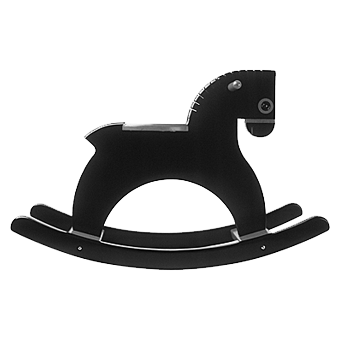“Daffodil, uncle.”
“No, not the fiver on Daffodil!”
“I should if it was my own fiver,” said the child.
“Good! Good! Right you are! A fiver for me and a fiver for you on Daffodil.”
The child had never been to a race-meeting before, and his eyes were blue fire. He pursed his mouth tight and watched. A Frenchman just in front had put his money on Lancelot. Wild with excitement, he flayed his arms up and down, yelling “Lancelot!, Lancelot!” in his French accent.
Daffodil came in first, Lancelot second, Mirza third. The child, flushed and with eyes blazing, was curiously serene. His uncle brought him four five-pound notes, four to one.
“What am I to do with these?” he cried, waving them before the boys eyes.
“I suppose we’ll talk to Bassett,” said the boy. “I expect I have fifteen hundred now; and twenty in reserve; and this twenty.”
His uncle studied him for some moments.
“Look here, son!” he said. “You’re not serious about Bassett and that fifteen hundred, are you?”
“Yes, I am. But it’s between you and me, uncle. Honour bright?”
“Honour bright all right, son! But I must talk to Bassett.”
“If you’d like to be a partner, uncle, with Bassett and me, we could all be partners. Only, you’d have to promise, honour bright, uncle, not to let it go beyond us three. Bassett and I are lucky, and you must be lucky, because it was your ten shillings I started winning with …”
Uncle Oscar took both Bassett and Paul into Richmond Park for an afternoon, and there they talked.
“It’s like this, you see, sir,” Bassett said. “Master Paul would get me talking about racing events, spinning yarns, you know, sir. And he was always keen on knowing if I’d made or if I’d lost. It’s about a year since, now, that I put five shillings on Blush of Dawn for him: and we lost. Then the luck turned, with that ten shillings he had from you: that we put on Singhalese. And since that time, it’s been pretty steady, all things considering. What do you say, Master Paul?”
“We’re all right when we’re sure,” said Paul. “It’s when we’re not quite sure that we go down.”
“Oh, but we’re careful then,” said Bassett.
“But when are you sure?” smiled Uncle Oscar.
“It’s Master Paul, sir,” said Bassett in a secret, religious voice. “It’s as if he had it from heaven. Like Daffodil, now, for the Lincoln. That was as sure as eggs.”
“Did you put anything on Daffodil?” asked Oscar Cresswell.
“Yes, sir, I made my bit.”
“And my nephew?”
Bassett was obstinately silent, looking at Paul.
“I made twelve hundred, didn’t I, Bassett? I told uncle I was putting three hundred on Daffodil.”
“That’s right,” said Bassett, nodding.
“But where’s the money?” asked the uncle.
“I keep it safe locked up, sir. Master Paul he can have it any minute he likes to ask for it.”
“What, fifteen hundred pounds?”
“And twenty! And forty, that is, with the twenty he made on the course.”
“It’s amazing!” said the uncle.
“If Master Paul offers you to be partners, sir, I would, if I were you: if you’ll excuse me,” said Bassett.
Oscar Cresswell thought about it.
“I’ll see the money,” he said.
They drove home again, and, sure enough, Bassett came round to the garden-house with fifteen hundred pounds in notes. The twenty pounds reserve was left with Joe Glee, in the Turf Commission deposit.
“You see, it’s all right, uncle, when I’m sure! Then we go strong, for all we’re worth, don’t we, Bassett?”
“We do that, Master Paul.”
“And when are you sure?” said the uncle, laughing.
“Oh, well, sometimes I’m absolutely sure, like about Daffodil,” said the boy; “and sometimes I have an idea; and sometimes I haven’t even an idea, have I, Bassett? Then we’re careful, because we mostly go down.”
“You do, do you! And when you’re sure, like about Daffodil, what makes you sure, sonny?”
“Oh, well, I don’t know,” said the boy uneasily. “I’m sure, you know, uncle; that’s all.”
“It’s as if he had it from heaven, sir,” Bassett reiterated.
“I should say so!” said the uncle.

